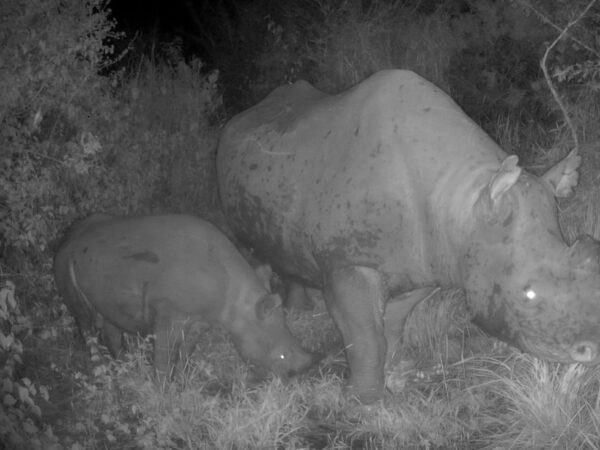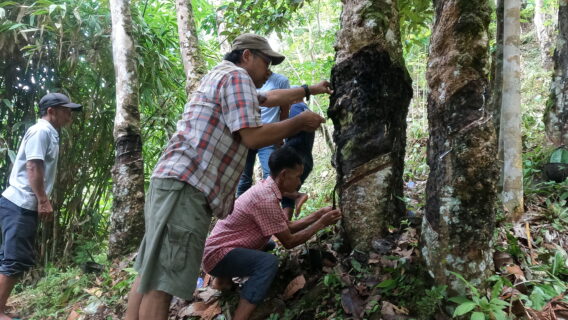
Conserving black rhinos through community-led protection at Somkhanda, South Africa
Project description
The biggest threat to rhinos in KwaZulu-Natal, South Africa, is poaching for the illegal trade in their horns, which has surged dramatically in recent years.
Somkhanda Game Reserve is a small, community-owned protected area in northern KwaZulu-Natal and has supported a small but healthy population of black rhinos since 2007. However, it has faced mounting challenges due to increasing poaching pressure, driven by the arrival of sophisticated poaching gangs, limited resources, and reduced ranger capacity.
Threats

Human-wildlife conflict

Poaching
This project aims to support Somkhanda by providing essential resources to improve protection and ensure the long-term viability of its black rhino population. Efforts will focus on raising awareness and empowering the local community as rhino custodians, strengthening the reserve’s capacity to monitor and manage the rhino population effectively, and enhancing security and anti-poaching measures to deter illegal activities.
Project objectives
- Improve the protection and ensure the viable persistence of the black rhino population at Somkhanda Game Reserve as part of the broader metapopulation and range expansion strategy.
- Engage the local community through awareness-raising and educational activities, particularly targeting children and young adults.
- Enhance black rhino monitoring and support informed population management through improved data collection and analysis.
- Upskill field rangers to strengthen on-the-ground capacity for rhino protection and reserve management.
- Increase anti-poaching and security measures within the reserve, incorporating the use of appropriate technologies.
- Contribute to local community upliftment by creating conservation-linked opportunities and fostering stewardship for black rhino conservation.
Project activities
- Host multi-day educational Wildlife Kids Camps within protected areas for students from schools surrounding Somkhanda to nurture a love of nature.
- Restore and coordinate a network of at least 10 motivated young adults as an active Wildlife ACT Ambassador Club, with monthly meetings and excursions into protected areas to expand members’ knowledge and access to careers in conservation.
- Increase the effectiveness of black rhino monitoring by enhancing the LoRaWAN network infrastructure, deploying additional camera traps, and providing targeted training to field rangers through workshops.
- Dehorn and fit tracking devices on black rhinos to reduce their appeal to poachers and improve monitoring capabilities.
- Improve security and anti-poaching practices by upskilling field rangers and deploying technologies such as remote security cameras and smart fencing.
This project is implemented by Wildlife ACT, South Africa




